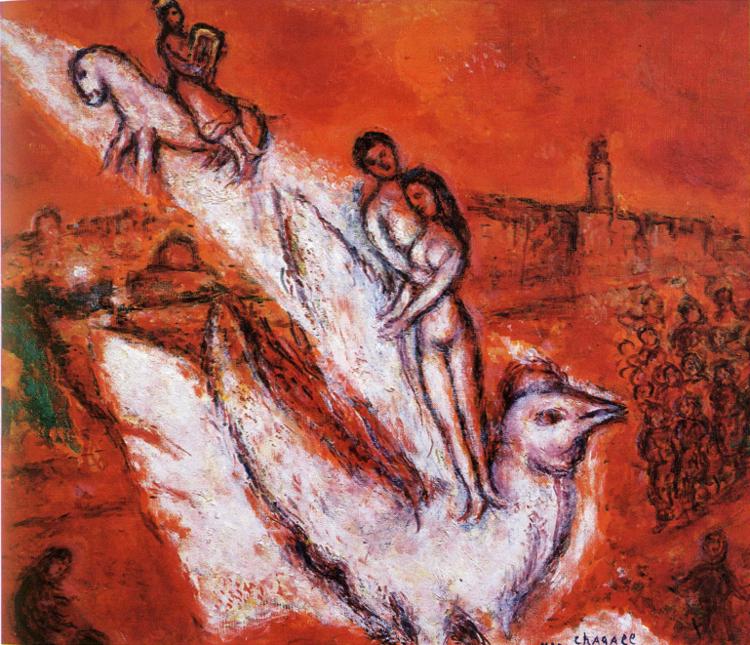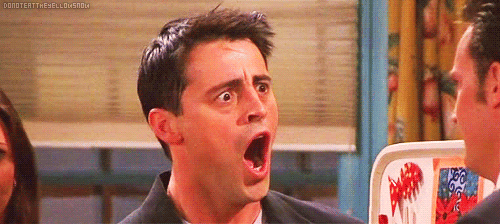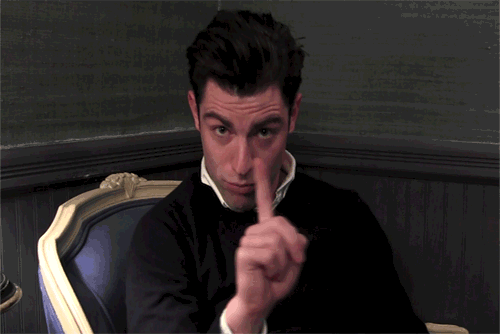The Patheos Catholic Channel is hosting a Symposium on the Family in light of the upcoming Extraordinary Synod on the Family in October and the recent release of the working document for the Synod.
Maybe you’ve noticed that one of the topics where the Catholic Church and the Modern world at large seem to differ on is sex. (Mmm, sex.) And one thing I’ve noticed is that the Modern world certainly seems to be obsessed with Catholic views on sex, which leads to a lot of discussion. And discussion is good! But most of the actual discussion that we have on this topic is wretchedly bad.
A big part of it is that the discussion focuses on lists of do’s and don’ts, which is pretty much useless if you don’t discuss the underlying logic of any do’s and don’ts. And even then we have a problem, because the very language that the Modern world and the Catholic Church use to talk about sex is different. Before you can even talk about a concept with someone, you need to agree with that someone about what the concept is. But our language has become so bifurcated that not only do we use different words, even worse: sometimes we use the same word and mean different things by it. And this is murder for dialogue, because if both sides use similar words, but mean different things by them, it’s impossible for them to understand each other; and if they don’t even realize that they mean different things by those same words, they will only grow more frustrated and antagonized as they think that the other side just isn’t making any sense. The Catholic worldview is this very big, old worldview that has been around for 2000 years, and as such, it has its own language and its own way of viewing the world which can be hard to communicate to others.
In other words, we’re at least two steps removed from even being in the ballpark of fruitful dialogue: talking about do’s and don’ts instead of talking about underlying logic; and not even understanding our terms when we do talk about the underlying logic.
So what I want to do here is, instead of talking about do’s and don’ts, and instead of even per se arguing for a certain view of sexuality, is do what should precede any fruitful debate, which is to define terms, and in particular, for a Modern audience, to define the terms that the Catholic worldview uses to talk about sex. Because there is enormous misunderstanding on this; and what’s more, we often don’t even realize that we mean different things when we use those terms. And until we do, it’s going to be impossible to have fruitful dialogue.
Ok, so let’s start defining terms.
And you’re going to see right away what I mean when I say we mean different things when we use the same word, because for the Catholic worldview, the most important thing relating to sex is… CHASTITY.
See? And this is where we get to our first problem.
Because when the Modern world hears “chastity” what they understand is “DON’T HAVE SEX. DON’T EVER THINK ABOUT SEX. NOTHING SEXY. FOREVER.”
Except that–believe it or not–this is NOT what the Catholic worldview means when it uses the word “chastity.” This is just not what the word means.
The best way to translate what the word “chastity” means in the Catholic worldview in Modern world-ese would be to say that chastity means “to have a healthy sexuality.”
Now, what “having a healthy sexuality” means in practice is another question. But when you hear a Catholic priest or bishop talking about the importance of “chastity”, this is what they mean. They mean “It’s important to have a healthy sexuality.” They don’t mean “Sex is bad!”
Just trust me on this. In Catholic-ese, what the word “chastity” means is “a healthy sexuality.”
Before we go further, it’s really important to stress this point: in the Catholic worldview, it’s important for everyone to have and develop a healthy sexuality.
How do I know this?
Because in the Catholic worldview, chastity–a.k.a. a healthy sexuality–is a VIRTUE.
There we go. Another problem.
Because, again, in the Modern world, the word “virtue” has lost its original meaning.
When people in the Modern world hear “virtue” they typically think “being a goody-two-shoes” or “being nice” or “doing the right thing.”
And again, this is wrong. And if we don’t get it right, we’re never going to progress.
And in the case of the word “virtue” it’s particularly important, because the concept of virtue is important not just in the Catholic worldview, but also in the Greek and Roman world, and Greek philosophy (Catholics got much of their concept of virtue from Aristotle), up to the Renaissance and the Enlightenment.
In other words, “virtue” is a concept that most of the wisest people in the history of our civilization have thought is really important, and we’ve forgotten how to even define it.
So I really want to stress this point. Because if you don’t “get” this, you’re not going to get the “Catholic Thing” about sex, or about anything. But not only that, you’re going to miss out on this huge, huge stream of very rich philosophy down to the present day.
Ok, so here goes: the best way to understand what “virtue” means is to think of it not so much as “doing the right thing” as having the propensity to do the right thing.
Not clear? Think of, say, a firefighter. If you’re a firefighter, most of your time is not spent putting out fires. Most of your time is spent training to be a firefighter. Not just working out, but doing drills, climbing into buildings, breaking down doors, and so on. And it’s obvious why, right? Because if you are a firefighter and you’ve trained well, once you are in an actual fire, you will do the right thing. You will know how to fight the fire, you’re not going to panic, you’re going to keep your cool, and so on. Your training will have given you the propensity to be a good firefighter. In the Catholic language, we would say that to be a good firefighter, you have to develop the virtue of being a good firefighter.
Or think of an athlete. The way to be a good tennis player is not to “decide” to hit the ball right. The way to be a good tennis player is to practice–and practice and practice and practice–so that you grow into being a good tennis player. You develop the virtue of tennis.
In the realm of morality or ethics, then, the concept of virtue tells us that doing the right thing is a lot like a muscle: it’s something you have to practice, it’s something you have to consciously work at getting better at.
In the ancient wisdom of philosophy and in the Catholic worldview, virtue is important because to develop virtue is to develop self-mastery. Think of becoming a good tennis player again. The reason why you have to practice tennis if you want to get better is because there are things that you want to do but can’t. You want to hit this screamer that slices right above the net, but instead it hits the net, or flies up into the stratosphere. In other words, you lack self-mastery. To grow in virtue as a tennis player is to grow in self-mastery as a tennis player.
In the realm of ethics, this has wide implications. Think of the apparent tension between virtue and freedom. In the Modern world, “freedom” has come to mean “the lack of imposition of rules.” But in the Catholic worldview, “freedom” means the freedom to do great things. If you want to be a great tennis player, if you want to have the freedom to put the ball exactly where you want it on the court, the freedom to be able to return a mean volley, you actually have to put a lot of rules on yourself. You have to bind yourself to practice and practice and practice. You have to abide by rules. But these rules only make you free.
Or think of music. If you want to have the freedom to express yourself through playing beautiful music, you need to bind yourself to practice playing an instrument at least one hour every day.
Or think of swimming. When I was a young kid, my Mom wanted me to learn how to swim. But that sounded boring, and I said no. My Mom said, why not? And, being the smartass I was, I said “Because don’t want to swim! And I’m free! I do what I want! My body, my choice!” (Ok, maybe I didn’t say “my body, my choice”) And my Mom looked at me and said: “…Really? No, you’re not free. Imagine you’re going to the beach with your friends, and they want to go for a swim. If you don’t know how to swim, you won’t be free. You won’t have a choice. Only if you bind yourself to learn how to swim will you then be actually free to decide whether to swim or not.”
(Seriously, my mind was totally blown. I still remember that moment all these years later.)
What virtue ethics tells us, in other words, is that if growth in virtue is growth in self-mastery, then rules don’t necessarily curtail our freedom; indeed, we need the right rules to increase our freedom.
Just like a tennis player has to to practice to be more free on the court, and just like I had to to learn how to swim to be free with regard to swimming.
How does this work in the realm of morality?
Well, think of something like alcoholism. When it comes to alcoholism, it becomes clear that binaries relating to “choice” and “freedom” aren’t of much help. “I’m free! I do what I want!” is the cry of every alcoholic ordering that eleventh glass of Bourbon. The whole point of alcoholism is that the alcoholic who says that, who even fools himself into believing that, is not free. In fact, he is the opposite of free. He is a slave to alcohol. What the alcoholic needs to be free is to impose on himself the rule of no longer drinking alcohol. And to the contrary, the more the alcoholic gives in to his alcoholism, the more he “chooses” to drink, the more enslaved he becomes. The longer you stop playing tennis, the harder it’s going to be for you to pick up the racket again.
And the whole point of understanding the ancient concept of virtue is to recognize precisely that. That becoming truly free is about growth in self-mastery, and imposing on ourselves the right rules, the ones that help us be truly free. If you’re an alcoholic, and you don’t have rules, you will always be a slave, and you will only become more enslaved, and you will ultimately destroy yourself and those around you. If you want to play tennis, and you don’t impose rules on yourself, you will always be a lousy tennis player; you will never achieve self-mastery and true freedom on the court; you’ll be a plaything for any half-competent opponent, who will amuse herself by making you run all over the court. And you won’t be able to do a thing about it.
Virtue, then, is about becoming who you really are–or, in the Catholic worldview, who you are really meant to be.
(Meant…BY WHOM? Hmmmmm….)
When someone has been deeply affected by something, we say they’re “not themselves”–there is profound wisdom in this. Again, think of an alcoholic. An alcoholic, someone who is the slave of some vice–that’s the word for the opposite of virtue–is not themselves. Somebody who’s either drunk, or always thinking about when they’re going to get their next drink, is a poor, second-rate version of themselves. If that person grows in virtue by abandoning the vice of alcohol, they will become more themselves and more free at the same time.
And another quick point about that word, “vice.” Again, this is a thing where we have a communication breakdown. When we hear the word “vice” we immediately think that the person saying it must be hyper-judgey. But the word doesn’t have to mean that at all. Alcohol is, or can be, a vice, but now we acknowledge that someone who is an alcoholic is not someone who is particularly more evil than anyone else; if anything, they’re the true victim of their vice, not the culprit. To say that is not to negate the overall point that reducing vice and growing in virtue is growth in self-mastery, freedom and becoming more of our true selves.
OK, BUT WHAT ABOUT SEX????
See? This is the extent of this communication breakdown, that I had to spend almost two thousand words talking about NOT-sex, just so that we could start talking about sex without having about a dozen misunderstandings in-between.
Now that you understand the concept of “virtue,” you’ll understand what I mean when I say that in Catholic-ese, then, “chastity” is the word that refers to virtue as it relates to the sexual life.
That’s it. “Chastity” is not a list of do’s and don’ts, it’s the word for virtue as applied to the sexual life. Which is why I said that the best translation in Modern-ese of what Catholics mean by “chastity” is “having a healthy sexuality.” Yes, there are rules, but now you understand that the point of the rules is not the rules, the point of the rules is growth in freedom and self-mastery–even (gasp!) holiness, which is a word Catholics use that means being like Jesus.
Ok, so what do Catholics think about chastity?
Well, the first is that Catholics know a few things that the Modern West often ignores, in a way that would have seemed bizarre to pretty much literally every other culture or era.
The first thing is that sex impacts everything we do. In the Modern world, “sex” just refers to what we do between the sheets (or not, as your case may be), and what we do with our genitalia. People in the Modern world certainly spend a lot (a lot) of time thinking about sex, talking about sex, obsessing about sex, but they also have this…bizarre…notion that whatever you may do sexually, it doesn’t really affect the rest of your being or life. It’s this bracketed thing.
In fact, how we relate to sex has a tremendous impact on every facet of our being. When I wrote that Catholics want everyone to have a healthy sexuality, maybe your first thought was “Oh yeah? What about priests and nuns?” Well, exactly. Chastity, i.e. a healthy sexuality, is particularly important for those who are called to a life of celibacy (i.e. no genital sexual expression).
See, another important phrase in Catholic-ese is integral fulfillment. What this means is that every aspect of our personality and of our life must be integrated with every other aspect, and harmoniously. And this is true of sex, and it’s true of everything else. So if you’re called to a life of celibacy, there are basically two ways to deal with that: one of them is by repression–pretending your sexual urges don’t exist and bottling them up–and the other is to express them in a different way (psychologists would call that sublimation). And one thing the Modern world and the Catholic worldview both understand and both agree on is that repression is unhealthy because it causes you to become angry and bitter and usually the thing you’re trying to repress tends to come out in bad ways. If you talk, in particular, to conventual religious, i.e. monks or nuns who live together in community, they will tell you that a thing they watch out for is to make sure they integrate and express their sexuality–not by having sex, but by not repressing their maleness or their femaleness, but instead finding ways to express them non-genitally. They in particular know this very well, because they know that a monk or nun who is repressing his or her sexuality is going to be an unhappy monk or nun and, since everyone lives together in community, is going to make everyone else unhappy.
So the Catholic worldview thinks sex is very important and a huge part of life. And it is totally true to say that according to the Catholic Church, it is unchaste to repress your sexuality.
The idea that sex has a relation to everything else in our life, again, would seem obvious to practically every other culture, worldview and era outside of the bubble of the very recent Modern West. Just look at literature. Half the tragedies of Shakespeare–Romeo and Juliet most obviously, but also, in different ways, Othello, Hamlet, Macbeth–are about the various ways sex screws us up. If you’re talking about politics and civil law, what happens in the bedroom should stay in the bedroom. But in terms of our psychological and moral health, what happens in the bedroom never stays in the bedroom. It affects everything else. Which is why developing the virtue of chastity–i.e. a healthy sexuality–is so important!
Think about our earlier analogy of the tennis player. If you want to be a really good tennis player, that’s not just going to affect what you do on the tennis court, whether during a match or at practice. If you want to be a really good tennis player, you also have to work out in the gym and not just the court. You have to have a healthy lifestyle. You have to eat a certain way. You have to get the right amount of sleep. You have to watch your stress level and abstain from stressful activities. And so on. In other words, developing a virtue is something that, directly or indirectly, affects every facet of your life. If you are chaste, if you have a healthy sexuality, it’s going to affect every other facet of your life. If you don’t have a healthy sexuality, it will screw up every other aspect of your life, directly or indirectly. If you do have a healthy sexuality, it will make the other aspects of your life healthier.
The second thing that Catholics understand that the Modern world doesn’t–and sorry, here, I’m going to sound like a scold–is that sex is dangerous.
Sorrrrryyyyyyy, but it has to be said. And no, I am not, or not primarily, talking about STDs.
The Modern world is super-aware of everything that can be totally awesome about sex. And it’s true! Many things are awesome about sex! Keep in mind the fact that, as I’ve said, Catholics think everyone should have a healthy sexuality, and having a healthy sexuality starts with not repressing it. Catholicism is not sex-negative. Catholicism says that sex can and must be awesome and is potentially wonderful and all the rest. Catholicism says that sex is GOOD. Really, truly, it is good, and a gift from God, according to Catholicism.
It is also dangerous.
Not in a judgmental way. Just in a factual way. Plenty of good things are dangerous–and if we want to use them well, and we should, because they are good, that’s something we ought to keep in mind. Like cars. Cars are awesome! If you are not aware of all the many ways in which cars can be dangerous, you should not drive a car. To say cars are dangerous is not to say cars are bad. It’s just to state a fact.
Actually, let me amend that: the Modern world does know about the dangers of sex–the biological dangers of sex. The Modern world is hyper-aware of the need for “safe” (by which it means biologically safe) sex. But it is not at all aware of the potential psychological, moral and, yes, I’m going to say it, spiritual dangers of sex.
Again, sex affects everything else we do in our life. Sex is not just physical. It is also psychological, moral, emotional, and spiritual. It is connected to every facet of our being. It is an elemental life force. It is dangerous. Handle with care.
And again, this is something that is absolutely utterly obvious to almost every culture and philosophy in the Universe except for the bizarro alternate dimension in which the Modern West has been living for the past forty years.
Think of something like alcohol. I am French. Alcohol is awesome. I love wine. I love beer. I love whiskey. I think alcohol is a gift from God, made for us to enjoy it, and I partake of it with joy. It’s also dangerous. I have seen many lives be ruined by alcoholism. And in my own life, I watch my alcohol consumption, because I realize there are potential dangers to just having no rules with regard to alcohol.
Or think of food. Again–I am French! Food? AWESOME. Love food. Cooking is one of my hobbies. It’s amazing. Gift from God. Made to be enjoyed. Also dangerous. If someone is screwed-up with regard to food, if they don’t have a healthy relationship with food, that will lead to bad consequences for them. (Pop quiz! Is it a coincidence that America is the most obese nation on Earth and the most sex-obsessed? It’s not a trick question.)
Same thing with money. It’s good to have money. But if you have an unhealthy relationship towards money, it’s going to destroy you, because you will only care about money, and not people.
This is something that every culture recognizes. We have all these good things in life, but we also recognize that, as good as these things are, they are also dangerous, which means that if we want to enjoy them responsibly, we need to have rules around them. And if you remember the thing about virtue, the point of rules is not to be mean, the point of rules is to help us grow in freedom, self-control and self-mastery.
And this is an idea that the Modern world has just completely, completely lost. Forget about any specific do or don’t right now. The idea that we need to grow in virtue and self-control with regard to the things in our life, including sex, is one that would have been absolutely, blindingly obvious in every single era and every single culture except ours. There have been many different versions of what it means, in practice, to exercise virtue with regard to sex. But the idea that sex, as this intensely powerful, elemental force in our lives that affects every aspect of our lives, is something that we can’t just indulge, it’s also something we need to achieve some degree of control and balance and restraint in, has been completely lost. And yet, if you understand the idea of virtue, of this growth in freedom through self-control, you realize how important it is.
Sorry for sounding like a scold–this idea of temperance, of restraint and self-control with regard to sex, can’t be the beginning or the end of the discussion, but it has to be part of the discussion, and the Modern world just has complete amnesia of that idea. Is it any wonder it also happens to be the most sex-drenched, sex-obsessed culture in history?
Ok, now for the final (and most important) Catholic insight: sex is not about pleasure, it is about relationship.
Pleasure is great! But it’s not the most important thing in life.
And, whether implicitly or explicitly, the Modern world makes sex about pleasure. As long as it’s “safe” and “consensual” (both those words being construed in very narrow ways), the motto is: if it feels good, just do it.
Instead, Catholics think sex is primarily about relationship. Hint: we think everything is about relationship, because even God is a relationship.
Think about our previous insights about sex. Not just about the importance of virtue and self-control and self-mastery and growth in (gasp) holiness. But about the fact that sex affects every aspect of our being.
Well, sex is something you do with someone else. And because of the nature of sex, the most important thing about sex is not the act itself, but its context, the relationship that it establishes, or strengthens. What is this relationship? What am I saying about this relationship through this act? Is the act worthy of the relationship, or the relationship worthy of the act? What does this relationship lead to (i.e. children)?
To be more specific: am I using this person, or not? Am I true to the meaning of this act in our relationship? Am I doing this for myself, my own enjoyment, or for someone else? Am I treating this other person like an object, or a person? Am I doing this for the good of this other person, or mine? More pointedly: am I giving myself to this other person through this act? Am I giving myself totally?
These are the important questions to ask. And if you ask them, you might eventually end up with, among other things, a list of do’s and don’ts. But if you aren’t first clear about everything else I’ve just written about, it’s going to be hard to make sense of the do’s and don’ts.
As I hinted earlier, this Catholic idea of sex being about relationship takes us to a whole new thing, which is primarily theological: how sex relates to God, and human life, and liberty, and vocation, and holiness, and so on.
But if you don’t even have the idea that we should develop the virtue of chastity around sex, that we should not just treat it as a pleasurable past-time, but an important, good, yet-potentially-dangerous thing that we need to properly integrate into our personality and our life, none of it will make sense.
We need to rediscover the virtue of chastity.
Illustration: Marc Chagall, “The Song of Songs”




















